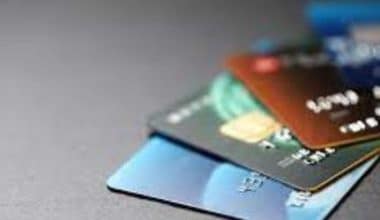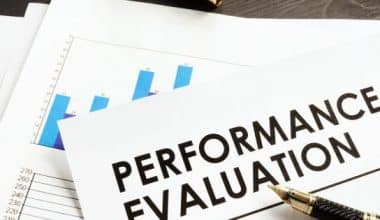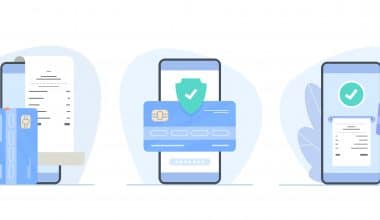When it comes to debt repayment, people are frequently confronted with a plethora of options, which may be a daunting experience. So, if you are considering a cunning combination of do-it-yourself strategies, prudent financial planning, and other sources of income, you are unquestionably on the correct track to increasing your profits. You are not alone if you have considered debt consolidation or debt relief. Many people struggle with debt management and look for viable methods to reduce their financial problems. In this comprehensive article, we will delve into the art of choosing an efficient pay-off debt credit card while also providing you with various ways to pay off debt fast. Read on!
Pay Off Debt Credit Card
Your particular situation will determine the best way to pay off credit card debt. The method you choose to pay off your credit card debt depends on your priorities. Are you looking to minimize interest charges, find satisfaction in paying off each credit card, or simplify your financial situation? Here are the steps to pay off a credit card debt.
#1. The Avalanche Approach
The debt avalanche strategy entails paying off debts with the highest interest rates first while keeping up with the minimum payments on all other accounts. Redirect the funds originally earmarked for the account with the highest interest rate to the debt carrying the second highest rate of interest. You should do this until you have paid off all of your credit card balances.
#2. Using the Snowball Method
Repaying debt with the snowball method entails starting with the account that has the smallest outstanding sum. Your higher payments will be applied to that balance, while you maintain the minimum payments on your other accounts to avoid late fees, credit damage, and default. Create a list of your account balances from lowest to highest to get started. Plan your finances so that you can pay off all of your credit cards but the one with the lowest debt in full each month. Pay as much extra as you can each month toward that balance.
When the funds in that account are depleted, go on to the account with the next-lowest balance. Keep going until you’ve paid off your entire credit card bill. Let’s pretend you have $7,000, $1,500, and $4,000 spread over three different credit cards. The $700 balance would be targeted first in the snowball approach. The card with the $1,500 balance would be paid off next, followed by the card with the $4,000 balance.
#3. Consider Using a Bill Transfer Credit Card
You may be eligible for a 0% intro APR balance transfer offer with a leading debt transfer credit card if you have decent to exceptional credit despite your debt and have been paying the necessary monthly payments on time and maintaining a low credit utilization ratio. Transferring balances from cards with higher interest rates to ones with an introductory 0% APR period of 12-21 months is a great way to save money.
According to 9% of respondents to a YouGov/CreditCards.com survey, you can pay down high-interest debt more quickly and easily during the introductory 0% APR period. “You should always be cognizant of the interest rate after the offer period is over,” advises Navy Federal Credit Union’s associate vice president of open banking, Justin Zeidman. Also, to avoid being trapped with a higher interest rate once the introductory 0% APR period ends, calculate how long it will take you to pay off your credit card balance compared to the promotional term.
#4. Get on a Budget
Everyone needs a budget, just like everyone needs a toothbrush; without either, life can get pretty ratchety pretty fast. If you want to get rid of your credit card debt for good, you need a strategy for your money. You get to direct your financial resources. And that goes right toward paying off your debt.
Now is the time to start cutting costs! You can use EveryDollar to easily construct a budget without spending a dime. To begin, tally up all of your sources of revenue. Then, jot down your monthly outlays. Prioritize the basics (food, utilities, shelter, and transportation) before anything else. Then, write down any additional costs you anticipate incurring. And don’t sugarcoat your monthly expenditures (e.g., on takeout, spa visits, or subscription services).
Take your total outlays and deduct them from your total earnings. Pay down the smallest debt first if you have any spare cash. If your budget figure is negative, you need to cut back somewhere until it’s positive. If your revenue is equal to your expenditures, then every dollar is being put to good use.
#5. Reduce Costs
So, you’ve done the budgeting thing. The time for tweaking has come. Look over your list very carefully. Where can savings be made? Yes, it will sting, especially if you are accustomed to simply charging purchases to your credit card. However, keep in mind that paying off your debt is a priority. And self-control is required.
Consider what you can go without this holiday season to help you pay down your credit card balances. Restaurants (eating out will eat into your budget significantly), entertainment (sports games, going to the movies), subscriptions you don’t use regularly (ahem, that gym membership), cable or streaming subscriptions (do you need all of them? ), and impromptu trips to Starbucks are all good places to begin cutting back. When it comes to paying off debt, every little bit counts.
You may still have a good time while minimizing your expenditures. You just have to be resourceful to have a good time without breaking the bank. The sacrifices you are making right now will significantly improve your financial future.
#6. Earn Some Extra Income
Paying off debt requires you to rein in your spending, but it also benefits from having more cash flow flowing in. Get a side job. Become a taxi driver. You can have Shipt or Instacart bring you your groceries. Just put it all on Poshmark or eBay and make some cash.
Make money off your knowledge and experience by tutoring, teaching, or working as a freelancer. Perhaps you need to work longer hours at your current job or look for a second job. You could do something like I did and sell cakes or train dogs. In either case, you need to be productive. How much more of your time and effort will it require? Yes. But will you be able to get out of debt sooner if you do this? Without a doubt!
Read also: HOW TO PAY OFF DEBT FAST: The Complete Guide
Pay Off Debt Calculator
The Pay Off Debt calculator is a useful tool that helps users to predict how long it will take to fully repay one or more outstanding debts. Individuals can receive useful insights on their financial route to debt freedom by providing key information such as current balance, interest rate, and monthly payment. This calculator’s user-friendly layout and reliable computations enable users to make informed decisions and take control of their financial future.
Hence, with the Pay Off Debt calculator, you can say goodbye to confusion and hello to a clear path to debt payback. Also, by giving a painstakingly planned payment sequence, this outstanding feature provides users with the ultimate cost-effectiveness. In addition, it allows customers to incorporate supplementary payments, which increases the overall financial benefits. This calculator employs the debt avalanche method, which is widely acknowledged as the most financially advantageous payback option.
How to Pay Off Debt Fast
The following are some of the ways to pay off debt fast:
#1. List All Your Debts
Finding out how much debt you have is the first step toward paying it off, especially if you have debt from numerous sources (such as multiple credit cards, educational loans, and personal loans). Maintaining an accurate record of all outstanding balances, interest rates, minimum payments, and payment due dates is essential. Google Sheets, or even just pen and paper, maybe a great help for keeping track of information.
This can be a daunting task for those who have accumulated a substantial amount of debt, but without doing so, it will be impossible to formulate an effective strategy for reducing the burden.
#2. Pay Down Your Debts One by One
Do you juggle many credit card balances? If so, always make at least the minimum payment due on each card. Then, pay off the debt on one card completely before moving on to the next.
#3. Pay More Than the Minimum
You can avoid paying interest and get ahead of your debt by paying more than the minimum each month. The secret to paying off debt faster is making extra payments regularly. You may be able to negotiate with your lender for the option to make extra payments toward the principal each month. Be sure to read over your loan documents first to see if there are any hidden costs or prepayment penalties.
#4. Avoid Using Credit Cards
Preventing further increases in your debt load can make dealing with it more manageable. Giving up credit card use is one option. Credit usage, or the ratio of your loan load to your available credit, is a crucial element in determining your credit score and can be improved by not adding to the balance while you are paying off debt. The better your credit score, the lower your credit utilization ratio should be.
You may want to see: HOW TO PAY OFF CREDIT CARD DEBT 2023 (Updated)
#5. Set up Another Side Hustle
It can be difficult to save up enough money for debt repayment. There’s just so much money you can save. If you already have a full-time job, working more hours at a second job may not be feasible. It could be much easier to fit in a side gig if you already have a full plate. Almost everyone can earn money by selling their time or expertise to others.
Look for a side gig that can bring in cash right now, rather than one that will require time and effort to construct. If you’re an excellent writer, for instance, you might want to think about freelancing instead of starting a blog. You may generate some additional cash by driving for a ridesharing service or grocery/food delivery.
#6. Reduce Unnecessary Spending
Cutting discretionary expenditure, which includes things like entertainment and dining out, is another method to free up cash for debt repayment. Discretionary funds are used for anything other than necessities. Expenditures like these fall clearly within the category of “discretionary spending.” Some forms of spending, however, may be more nebulous.
One or two streaming services may be required for your daily life, but subscribing to any more may be seen as a luxury. Even though food is a necessity, spending a lot of money on takeout or delivery is not. Remind yourself that the difficulties and boredom of refraining from frivolous expenditures are just temporary.
#7. Set a Deadline for Payment
It’s commendable to aim to eliminate debt, and it’s much more commendable to do so by a certain deadline. Numerous online calculators can tell you, based on your current interest rate and monthly payments, how many months you have left until you own the property outright. If the idea of making payments for 18 months is daunting, try bumping them up by $50 or $100 per month to see if that helps.
What Is the Best Way to Pay Off Debt?
The debt snowball strategy should be considered. The lowest debt is paid off first, with the proceeds applied to the next-smallest debt, and so on, all the way up to the highest debt. As you use this strategy to eliminate your debt, you’ll gain momentum.
Is It Worth Paying off All Debt?
Clearing all of your outstanding debt may not always be the most logical course of action. The decision regarding whether to pay off your debt or invest your money is contingent upon several factors. These include the nature of your debt, the interest rates available to you, the potential returns on your investments, your age, and, most importantly, your overarching financial objectives.
Is $20,000 Debt a Lot?
According to Rossman, having $20,000 in credit card debt is a significant amount, and it appears that you are having difficulties making any progress toward paying it off.
How Much Debt Is Too Much Debt?
In general, a debt-to-income ratio of 36% or less is considered favorable. On the other hand, any ratio exceeding 43% is considered excessively high.
References
- nerdwallet.com
- ramseysolutions.com
- creditkarma.com
- bankrate.com






